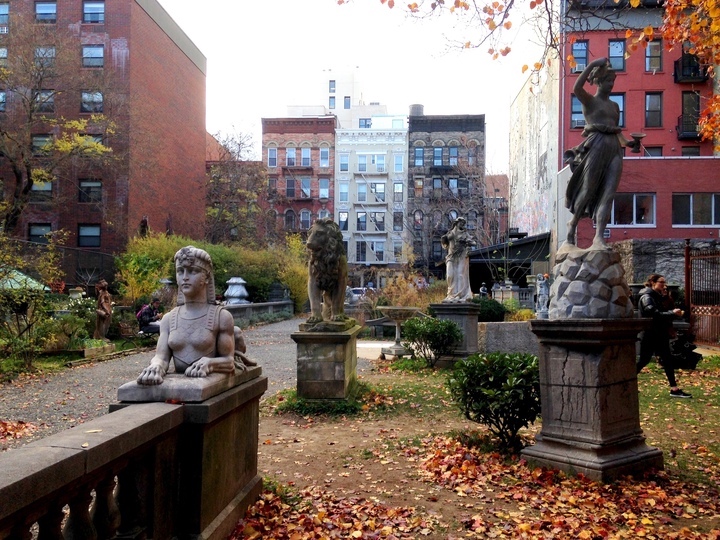A remarkable historic sculpture garden situated in Little Italy, Manhattan, may have found a fresh glimmer of hope amid concerns of eviction. The Elizabeth Street Garden has been in a fight to maintain its grounds against city officials who are planning to redevelop the area into an LGBTQ+ senior living center.
The serene, one-acre art garden, maintained by a namesake non-profit organization, had been handed a two-week eviction notice on October 2. This was after an ongoing 14-year dispute concerning municipal housing commissions and advocates of green space conservation. Trouble ignited in 2012 when the New York City Housing Authority seized ownership of the land with plans to create affordable housing.
Over the years, the proposed structure was met with numerous rallies. Elizabeth Street Garden in response filed a legal action against the New York City Housing Preservation and Development (HPD) in 2019, initially halting eviction. However, the decision was dismissed in July by the HPD claiming that the proposed development would cause no significant negative impact on the environment. In response to this, the Elizabeth Street Garden holds that it is the sole public green space in the Little Italy and Soho regions.
City Council Member Christopher Marte suggested a new and promising solution. He announced that his office has suggested rerouting the subsidized housing funds aimed for the Elizabeth Street Church to be allocated elsewhere. The funds would be directed to plots that are currently aimed for complete luxury apartment development.
Meanwhile, the housing development intended to serve low-income, formerly unhoused, and LGBTQ+ seniors is due to break ground next summer and is anticipated to open by 2027. The planned complex involves a publicly-accessible 16,000-square-foot open space. City Council Member Margaret Chin advocated for the apartment, saying that community members would be given an opportunity to enjoy public green space.
On the contrary, supporters of the park believe it to be a unique place that brings people together and forms a neighborhood community. They argue that this open space carries importance, criticizing that housing and open space have been unfairly pitted against each other.
Most notably, Elizabeth Street Garden carries an array of Neoclassical sculptures, placed by father and son team Allan Reiver, the former owner of the Elizabeth Street Gallery, and his son Joseph Reiver, who now serves as the Executive Director of the Elizabeth Street Garden. These sculptures are complemented by strategic plantings and works of art in harmony with the sculptures. There’s a rare gazebo designed by the famous Olmsted Brothers and a stone and granite balustrade hailing from one of the largest mansions of the Gilded Age in Philadelphia.
Supporters of the garden emphasize the precious nature of open spaces. They are protective of this place as they appreciate the art it showcases and foster the belief that such a space would never be constructed again in New York. While the struggle continues, the importance of the park in the eyes of locals remains undeterred. Their wish is that affordable housing can be created without sacrificing treasures such as the Elizabeth Street Garden.




